
Kód: 01604997
Money - the root of global trade
Autor Katharina John
Seminar paper from the year 2007 in the subject Economics - Monetary theory and policy, printed single-sided, grade: 2,0, Vienna University of Economics and Business , course: Seminar Business English, 47 entries in the bibliograp ... celý popis
- Jazyk:
 Angličtina
Angličtina - Väzba: Brožovaná
- Počet strán: 28
Nakladateľ: Grin Publishing, 2007
- Viac informácií o knihe

Mohlo by sa vám tiež páčiť
-

Signs of Crime
32.54 € -

Endurance of Nationalism
54.41 € -

Noncommutative Localization in Algebra and Topology
88.60 € -

Biotechnology in Functional Foods and Nutraceuticals
280.10 € -

Das Alltagsgeschichtenbuch. Bd.1
42.29 € -

Wolkenkinder - Der große Auftritt
12.31 € -

Die Christliche Mystik, Volume 4, Issue 1...
45.07 €
Darčekový poukaz: Radosť zaručená
- Darujte poukaz v ľubovoľnej hodnote, a my sa postaráme o zvyšok.
- Poukaz sa vzťahuje na všetky produkty v našej ponuke.
- Elektronický poukaz si vytlačíte z e-mailu a môžete ho ihneď darovať.
- Platnosť poukazu je 12 mesiacov od dátumu vystavenia.
Viac informácií o knihe Money - the root of global trade
Nákupom získate 109 bodov
 Anotácia knihy
Anotácia knihy
Seminar paper from the year 2007 in the subject Economics - Monetary theory and policy, printed single-sided, grade: 2,0, Vienna University of Economics and Business , course: Seminar Business English, 47 entries in the bibliography, language: English, abstract: The transition from barter economic systems to early monetary economies in Europe took place at around 700 BC. Ancient Greece (1000 BC 323 BC) and afterwards the Roman Republic (509 BC 44/27 BC) successfully established simple coinage systems with currencies like the denarius that already managed to fulfil the three modern economic functions that distinguish money from all other assets. In line with an ancient free-market -regulatory system during the early years of the Roman Empire (44/27 BC 476 AD) the denarius subsequently paved the way for a tremendous enlargement of foreign trade, thus marking off the beginning of modern free trade. On the other hand, the Romans were the first who suffered from the negative aspects and challenges of a market economy: since modern principles as social and income justice as well as price stability were fully disregarded, the Romans were facing financial inequality, hyperinflation , and cultural erosion of their way of living . Their fiscal and monetary policy harshly failed to finance long-term public expenditure, in particular military expenditures and imperial bribes. This imperfect competitive system is one of the main reasons for the disastrous collapse of the (Western) Roman Empire.However, this erroneous trend cannot only be assessed for ancient market systems: inflation during the years 1914-1923 in the German Reich and Weimar Republic also showed negative economical implications of hyperinflation including intense individual suffering and social impairment. Accompanied by the Black Tuesday of 1929 the German inflation finally fuelled political extremist fractions and amplified distrust towards economic institutions and legitimate democratic authorities.
 Parametre knihy
Parametre knihy
Zaradenie knihy Knihy po anglicky Economics, finance, business & management Economics
44.24 €
- Celý názov: Money - the root of global trade
- Podnázov: - Economical and social aspects -
- Autor: Katharina John
- Jazyk:
 Angličtina
Angličtina - Väzba: Brožovaná
- Počet strán: 28
- EAN: 9783638864961
- ISBN: 3638864960
- ID: 01604997
- Nakladateľ: Grin Publishing
- Hmotnosť: 50 g
- Rozmery: 210 × 148 × 3 mm
- Dátum vydania: 26. November 2007
Obľúbené z iného súdka
-

Why Nations Fail
11.18 € -14 % -
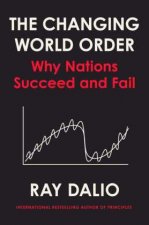
Principles for Dealing with the Changing World Order
24.53 € -5 % -

Team Topologies
23.91 € -12 % -

Misbehaving - The Making of Behavioral Economics
10.57 € -12 % -
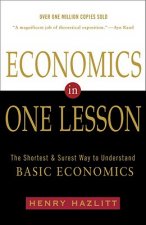
Economics In One Lesson
15.80 € -23 % -
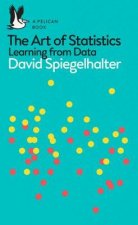
Art of Statistics
10.98 € -24 % -

Freakonomics
9.13 € -10 % -

Liar's Poker
13.65 € -

Rational Optimist
13.65 € -

Predictably Irrational
14.98 € -19 % -

Pyramid Principle, The
51.43 € -4 % -

Essential Mathematics for Economic Analysis
73.20 € -1 % -

Irrational Exuberance
20.42 € -9 % -
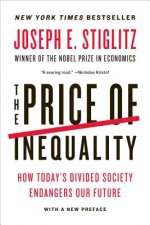
Price of Inequality
10.57 € -22 % -

The Invisible Hand
8 € -22 % -
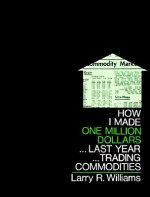
How I Made One Million Dollars Last Year Trading Commodities
53.49 € -

(Mis)Behaviour of Markets
14.47 € -23 % -

Breakthrough Copywriter
17.86 € -

Leading at a Higher Level
34.70 € -

Cartoon Introduction to Economics
19.81 € -8 % -

Economics 101
14.88 € -18 % -

Discovery, Capitalism & Distributive Justice
22.99 € -

Human Action
38.19 € -

Leadership Presence
22.37 € -

Business Model Navigator, The
26.79 € -14 % -
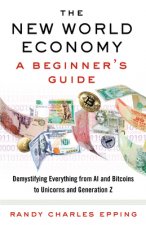
New World Economy: A Beginner's Guide
15.39 € -21 % -

J R
27.71 € -5 % -

Ludwig von Mises
22.99 € -

Index Card
15.60 € -5 % -

Radical Uncertainty - Decision-Making Beyond the Numbers
19.09 € -2 % -

Speak Up
18.78 € -13 % -

Start-Up Nation
9.13 € -24 % -
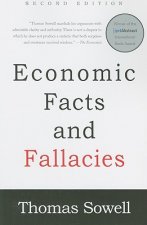
Economic Facts and Fallacies
17.03 € -20 % -

A-Level Economics: Year 1 & 2 Complete Revision & Practice (with Online Edition)
28.43 € -9 % -

Scrum - A Pocket Guide - 3rd edition
22.89 € -4 % -

Debt, 10th Anniversary Edition
28.12 € -22 % -

Freakonomics
6.15 € -24 % -
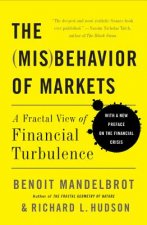
Misbehavior of Markets
24.74 € -

Econometric Analysis, Global Edition
86.55 € -

Hypomanic Edge
21.24 € -12 % -

ITIL4 A POCKET GUIDE
25.25 € -

Decision Book
16.21 € -16 % -

Principles of Economics
16.01 € -13 % -

45 Second Presentation That Will Change Your Life
10.05 € -19 % -

Economics of the Public Sector
83.57 € -

Economics: The User's Guide
12.82 € -24 % -

Think Like a Freak
9.74 € -25 % -

Phishing for Phools
16.32 € -15 % -
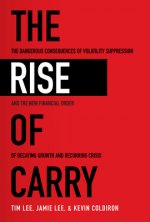
Rise of Carry: The Dangerous Consequences of Volatility Suppression and the New Financial Order of Decaying Growth and Recurring Crisis
27.82 € -16 %
Osobný odber Bratislava a 2642 dalších
Copyright ©2008-24 najlacnejsie-knihy.sk Všetky práva vyhradenéSúkromieCookies



 21 miliónov titulov
21 miliónov titulov Vrátenie do mesiaca
Vrátenie do mesiaca 02/210 210 99 (8-15.30h)
02/210 210 99 (8-15.30h)